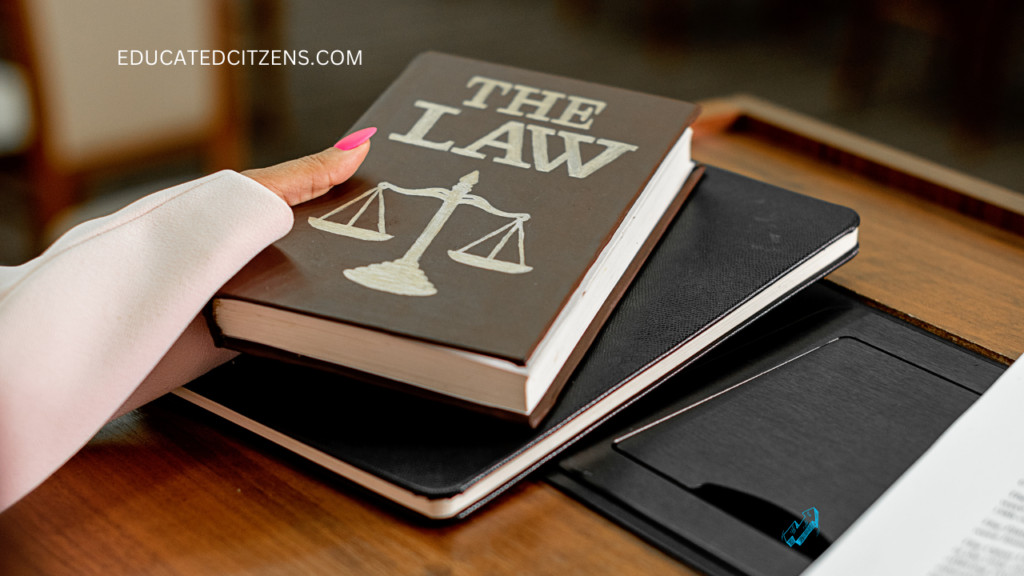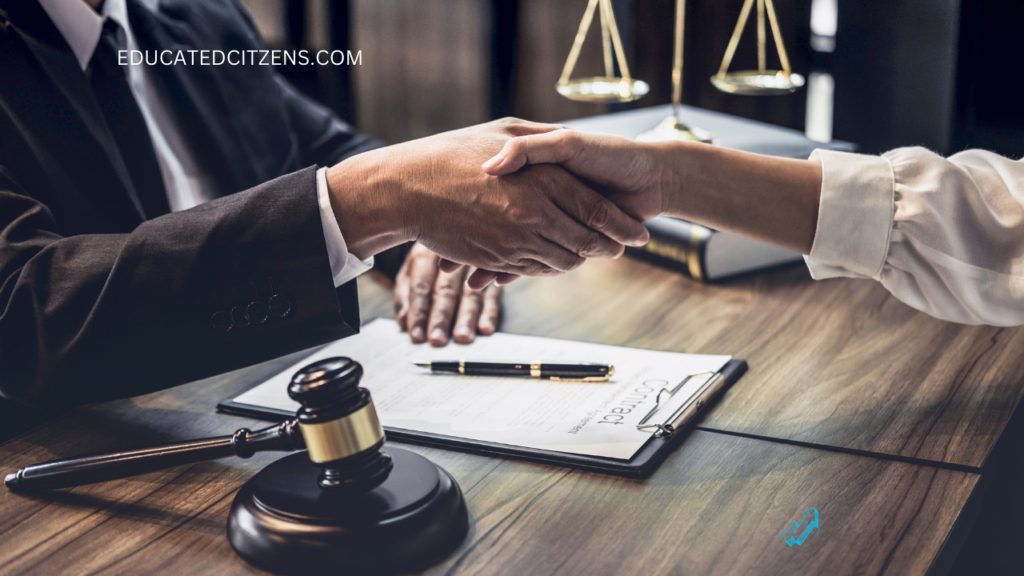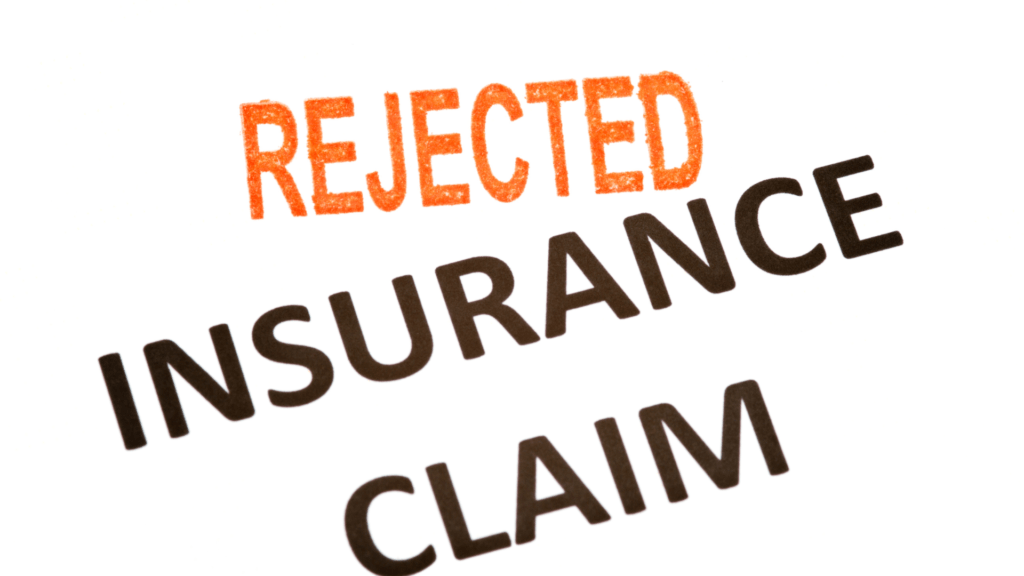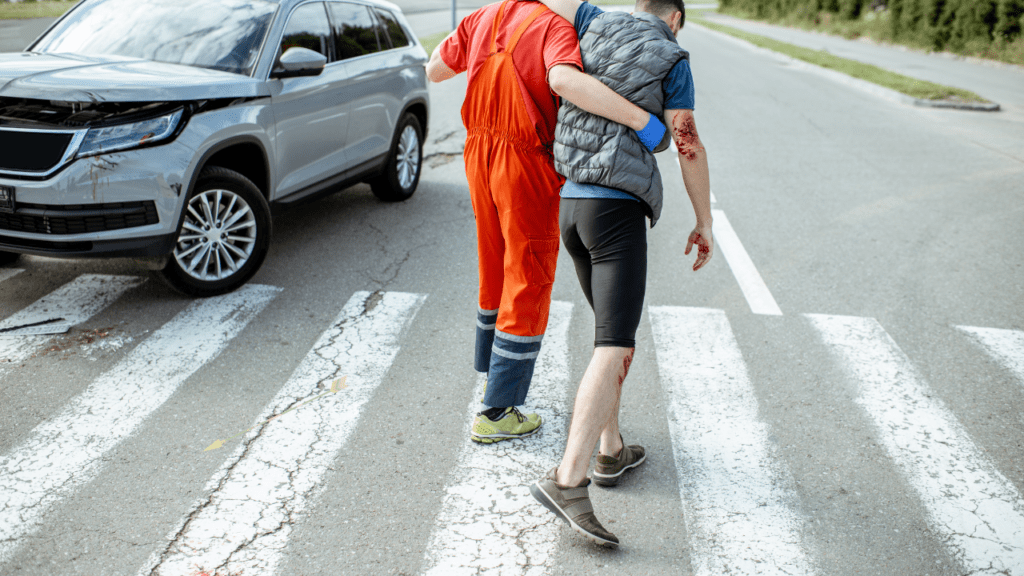Page Contents
1. Introduction
When a crime is committed, someone has to pay the price. It is the responsibility of the state to ensure that justice is done. The police are the ones who are responsible for making sure that the law is obeyed and that all people are treated fairly. One of the ways that they do this is by creating a written record of when a crime took place. This is called a police report.
A police report is a document police officers create after an investigation. It is used by the police to investigate the crime. It provides the police with the time, location, and type of crime in a detailed manner. Some people think that filing a police report is something that is not important. This is not true at all.
In fact, it is the beginning of the whole process of law enforcement, to serve justice to the victim and the society. Let me explain briefly what it is and what it is for and then we will move on to the importance of filing a police report.
1.1. what is a police report?
A police report mainly consists of the factual details of the incident, such as the date, time and location of the incident, the type of incident that occurred, and the details of the person who was involved in the incident, and the type of harm caused. A police report also serves as an important document for insurance companies.

When a report is filed, the insurance company of the victim will conduct an investigation in order to determine who was at fault. The police report provides the insurance company with a third party, unbiased account of the incident and can be used to help determine the claim. One of the most significant aspects of a police report is witness statements and our investigation found that 32% of officers use witness statements as the most convincing information for a case.
A witness is someone who is at least 16 years old and has relevant information regarding the facts or circumstances of the case. The witness must provide his or her address and may be asked to show valid identification. It is important to note that witness statements are considered public records and are subject to disclosure in judicial and administrative proceedings, as well as in response to public information requests.
Further reading: How to know if someone reported your license plate?
So, it is not that it is applicable in every situation or case, but merely it is a smart move for everyone involved in the accident to file a report, obtain a case or report number, and keep a copy of the report so they can avoid any accusations or complications which may be based on a lack of evidence.
In addition to the evidence and protection from the police, they can also help prevent a swap situation which is an increasing problem in the world of insurance nowadays. Official figures indicate that approximately 10% of motor claims and 1% of property claims are linked to ‘cash for crash’ type fraud. This kind of fraud is when people either create, exaggerate or even invent insurance claims they are doing so just claim compensation for personal injury.
Cash for crash criminals need a police report to support their claim and not everyone who uses or offers a car for credit hire fraudulently will be involved in deliberate collisions. This displays that by filing a police report and engaging in the investigation process, the possibility of becoming a victim to a fraudulent claim decreases.
1.2. Importance of Filing a Police Report
And last but not least, timely reporting can help prevent loss of evidence. Physical evidence is often necessary to help prove a case. However, many types of evidence such as video tapes, physical damage, and general scene conditions, can change or disappear over time.
The more time that passes between the incident and the collection of the evidence, the weaker the value of this evidence becomes. So, by postponing the collection of evidence, you may lose critical evidence that could help your case.
By filing a report and alerting the authorities of the incident in a timely manner, you prevent the potential loss of evidence. Also, be mindful that evidence can also include human testimony and with time, witnesses to the incident may become jaded, move, or forget facts. All of these factors could potentially weaken your case, if much time is allowed to pass before a report is made.
Further reading: Can someone report you for hitting their car if they only have your license plate number?
Police reports can be beneficial to your insurance claim. When you are making a claim against your own insurance policy, a police report can bolster your case. Police reports document the officer’s opinion about how the car accident occurred, and who was at fault. This opinion can help prove your case in court. Also, in hit-and-run and other no-fault cases, evidence of a police report may be the difference between having your claim denied and getting the insurance coverage you deserve.
In addition, police reports can be used in court as evidence. Reports can help the court identify and act on any patterns of criminal behavior. They are a part of the “discovery” process which means that the defense has to share any relevant reports with the prosecutor.
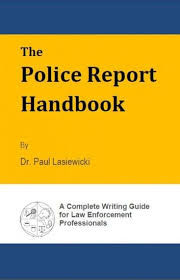
Also, they can be helpful in the prosecution of cases. If the responding officer finds that there is enough evidence to charge the perpetrator, the report itself can serve as the starting point of a criminal case and may ultimately be the piece of evidence that leads to a conviction.
It is important for victims to file a police report because it helps document the incident and provides a record of events that took place. Furthermore, it can be used as evidence in the court of law and can be helpful in the claims process. Police reports also provide law enforcement with leads and clues to work with when investigating a case. Without a police report, criminals may have a greater ability to avoid being caught and law enforcement may not learn about crime trends or patterns.
2. Process of Filing a Police Report
The process of filing a police report starts with contacting the police department. The police department that has jurisdiction over the location of the incident is the one responsible for taking the report. Most departments have a non-emergency phone number that can be called for general inquiries or to report a crime or incident that is not an emergency.
Calling the 911 emergency number should only be done when a crime is in progress, there is a threat to safety, or there is an emergency situation requiring the response of emergency services. When calling to file a report, the person making a report should be prepared to answer basic questions and should have information available about the location, date, time, and what occurred.
After providing this information, the police may schedule a meeting with an officer to further discuss the incident. Having to go to a meeting with an officer does not necessarily mean that there will be any follow-up, but for more serious incidents or crimes, it is common for an officer to want to discuss and document the incident in person. During the meeting, the officer will ask questions to clarify and add detail to what was provided in the initial report.
Once all the necessary information is gathered, the officer will complete the report and provide a preliminary case number. It is important to make sure that a copy of the report is obtained for personal records and that the case number is written down. This case number is used to track the progress of the investigation and will be necessary for making any future inquiries about the case.
Often, a report filed online will be assigned a permanent case number and a copy of the report can be printed immediately. However, for reports made over the phone or in person, it may take a few days for the case number to be generated, and a copy of the report may have to be picked up in person from the police department.
2.1. Contacting the Police Department
Also remember that “any piece of information that you can provide, even if it’s not specifically asked for, could be of assistance in that investigation.” This is according to police sergeant Vincent O’Brien of the New Haven police department in Connecticut and nearly 20-year veteran of the police force.
So if there is something you think might be helpful for the police to know, such as whether other neighbors have been victims of the same crime—consider volunteering that information in your report. And do not be afraid to ask the officer taking your report any questions about the process or the investigation.
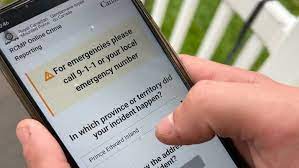
According to Officer O’Brien, “often we know what information people will ask for and can help head off that confusion, and give that help to the citizens.” This can help make the process more efficient and less stressful for you. But remember, the responsibility for conducting the investigation once the report is filed is with the police department.
You can call the non-emergency number and ask for the number of the detective who has been assigned to follow up on your case, if you want to follow up or speak to someone. However, it is important to keep in mind that giving information directly to the detectives goes against typical reporting procedures and may not be helpful.
In addition, provide your emergency contact information to the police department. By providing the police with your emergency contact information, like the name and phone number of a family member or a friend, it can help provide law enforcement or other governmental agencies with the ability to contact the person you have designated in the case of an emergency if, for example, the police are called to check on your welfare. Keep in mind that in some states, such as Tennessee, you can register your emergency contact information online through the state government’s website.
In some jurisdictions, the police department may have a form that you can only obtain in person from the department’s office. In others, they may provide a police report number when you file a report. This report number can be used to obtain a paper copy of the report either immediately, or by some later date when the report has been processed.
Further reading: I panicked and left the scene of an accident, what to do in a hit and run?
This may be relevant, for example, if you are making the report in connection with identity theft and you want proof of the report to use for restoring your credit as quickly as possible. Also be aware that you may not receive a copy of the report, or the report number, until the police department has had time to follow up with the investigation.
After you make the call to the police department and an officer comes to take your report, the officer will ask you for ID. This helps to ensure that the person making the report is the person who is named in the report. If you’re reporting identity theft, be sure to explain to the officer that the “you” whose name is on the fake or unauthorized account is not the “you” who is reporting and giving the statement—it is the imposter who is pretending to be you. Also be sure to ask the officer where you can obtain a copy of the written report.
When you contact the police department to file a report, you should call the non-emergency phone number for the police department with the jurisdiction in which you live. This is because these are the officers who have the authority to enforce the laws and make arrests for crimes that are committed in that area. If you’re not sure which police department to contact, you can call 911 and they will direct you to the right place. But 911 should be used for emergency situations only.
2.2. Providing Relevant Information
When providing information for a police report, it is important to be as detailed and specific as possible. You should only include factual information that you know to be true. Any opinions, comments, or conjecture about the incident or the people involved should be omitted from the report.
The report should focus on the incident in question and not delve into personal history or grievances. There are general questions that you should be prepared to answer when providing information for a police report. These can include what happened, when the incident occurred, where the incident occurred, and who was involved in the incident. By law, police reports are public records and as such the information contained in the report is deemed to be public knowledge.
Therefore, it is important to only provide information that you are comfortable being made available to others. As such, it is always important to consider and respect the privacy and reputation of others when providing information for a police report. Similarly, it should be remembered that any information that is known to be false or misleading that is included in a police report may constitute a criminal offence.
This is an offence that is taken very seriously by law enforcement agencies due to the potential impact that falsely reported information can have on their actions and on the unsuspecting subject of the report. Such offences are actively investigated and prosecuted.
2.3. Meeting with a Police Officer
In this meeting, the victim will meet with a police officer to further discuss the incident and to provide any additional details. Victims should bring any evidence that has been gathered, including things such as photos, videos, or personal items that have been damaged.
The victim should also bring any copies of documents that may have been obtained, including things such as protection orders, no contact orders, or any communications that the victim believes may be relevant to the incident that is being reported.
Also, it is important for the victim to give a full and accurate account of what has happened. It is common for victims to have difficulty recalling the specifics of an incident, especially when it may have been traumatic. However, it is important for the police report to be as detailed and accurate as possible. It is important not to rush through the meeting and for the victim to take their time in giving an account of what has happened.
Victims may be provided with services, such as a Victims’ Advocate to provide support and provide information for things such as filing for compensation. Finally, the victim should ensure that they obtain the investigating officer’s name, badge number, phone number, and a copy of the face page of the police report.
This information will be useful for getting updates on the investigation as it progresses and for any further follow-ups that will be needed. Also, in order to file for compensation through the New York State Office of Victim Services, the Victim Information and Notification Everyday Network program, or the Address Confidentiality Program, the victim will need to provide a police report number.
This will help to facilitate the readiness of the victim at each step in the process, from the initial police report to the possible arrest and conviction of the perpetrator. In New York State, the Office of Victim Services, a state agency that provides compensation to innocent victims of crime, has several resources and referral services available. It may take up to five business days after the police report is made for the report to become available.
Victims of domestic violence also note that police officers should not ask a victim of domestic violence for a certification of the report as a condition of conducting an investigation into the domestic incident. It is also important to highlight that it is unlawful for an individual to unlawfully place a report with the intent to prevent or disrupt the operations of a city or state department.
Also, the OMH Psychiatric Advanced Directive form authorizes police officers to take a person to a hospital if they are not voluntarily going to the hospital and the person is either a danger to themselves or others or appears to be mentally ill.
3. Investigation and Legal Procedures
After a police report has been filed, it will be assigned a case number. This helps to catalog and keep track of all the reports that are being filed. The case number is also important for insurance purposes, as it provides a verifiable record of the incident and the date that it occurred.
Following the assignment of the case number, the police will begin their investigation by collecting evidence and taking statements from any witnesses. This can involve the police visiting the scene of the crime and taking photographs, and will often also involve taking a statement from the victim. It is important for the victim to be as detailed as possible when giving their statement, to make sure that the police have all the information that they need to properly investigate.
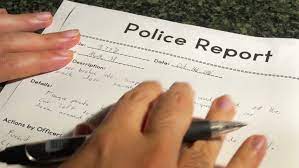
It is also possible in some cases for physical evidence to be taken from the person who is accused, in a process known as a “consensual search”. This can include the police taking DNA samples or photographs. Once witness statements and evidence have been collected, the police may then wish to question the person who has been accused of committing the offense.
This can involve the accused being asked to attend an interview at the police station to answer questions; it is different from being arrested and is known as a “voluntary attendance”. The police will decide what will happen and what further inquiries and investigation should take place. They may wait for the results of some of these before making a decision whether to arrest someone.
If the police believe there is enough evidence to charge the person, then it must be decided if it is in the public interest to do so. Factors such as the seriousness of the offense, a person’s criminal record, and the public’s opinion can be taken into account when deciding this.
This also means that if a person is charged and does not already have a court date, they may be given one later when they attend the police station voluntarily. If a person has a court date, this will be either for the initial hearing (which is known as the “first appearance” or “arraignment”) or for a trial.
3.1. Assigning a Case Number
In almost every case, when a police report is filed, the information is received by the dispatch of the police department. An operator will enter the details of the complaint and the names of the persons involved into the computer-aided dispatch system.
This generates a call for service, which is routed to the various police officers who may be on duty and able to respond to this type of call in the neighborhood where the incident occurred. Police or law enforcement officers receive the call for service on their mobile data computers or by a printed document given to them by dispatch.
The complaint and the way it was received by the officer generated it will also be summarized in the incident reports that the responding officers must write. When a report is forwarded to the detective bureau or another division for follow-up investigation, reports and documents will continue to be generated showing progress and results of the investigation. In the police records, the progress of the investigation is often linked by reference to the incident number or report number originally assigned to the complaint.
This enables easy tracking of where in the system the case evidence and reports may be located. Often the incident report number will be printed on any follow-up documents or request for action sent to people or businesses related to that complaint.
So, for example, if the victim of a petty theft needs a report to document the crime for an insurance claim, it becomes very easy for the police report to be located in the records management system by just entering that incident number and printing out a copy of the report when needed.
A victim or complainant may be able to obtain a copy of a report and important follow-up information quickly upon request in this manner.
3.2. Gathering Evidence and Witness Statements
Different from a police inquiry, when the police themselves are trying to solve a crime, in this situation, the reporter or the plaintiff has actually gathered the police to take official note of a complaint. The Police Department is lawfully required to begin a forceful investigation to verify the truth or otherwise of the information provided. If any police officer declines to file a report, ask to speak with a superior officer.
In many cases, the superior will agree with his subordinate and the most that one can obtain is the superior officer’s business card. But every occasion when a police officer states their name and a reason why they didn’t file the report must be logged and it is likely that one will always get the report acknowledged if it’s properly requested from the police.
The member of the public should make a memorandum indicating the date, time, location, reason for contacting the police and the outcome of the request for a report, and then inform the organ that supervises the police, who investigate complaints of this nature. Victims of refusal by law enforcement officers are entitled to recuperate damages and to receive compensation. It is suggested that one should speak with an attorney to explore the possibility of legal action, as various legal procedures can be initiated in response to the failure of the police to act.
It is important to take note that the filing of a report opens up various kinds of pathways for aggravated cases like lawsuits against the police, harassment and injury, just to name a few. It is a common law right in the United States to bring a lawsuit against any person for any ground, providing that the actions of that person or corporation have given rise to damage; for example lawsuits against the police for assault, false imprisonment and trespass to land.
Further reading: What type of insurance will pay for damages if you are the victim of a hit-and-run driver?
On account of the police not fulfilling their initial duties, i.e., to receive the reports and necessary information, victims and law-abiding citizens are being deprived of their fundamental rights to justice and access to the courts.
It’s important to be considerate when litigating against the police because if the member of the public or the plaintiff in a court case against a police officer does not establish that the law enforcement official in question has no defense then they could, in some cases, be made to pay not only the legal fees of the officer that is being sued but also the plaintiff’s.
3.3. Interviewing the Accused Party
In respect of the case we mentioned in section 3.1, the accused party will be reached out for an interview. During the interview, the police will give the accused the opportunity to tell his side of the story. In addition, the accused will be asked to comment on what has been alleged by the victim.
He will also be informed of the details of the allegation and be provided with the important case-related document. This is crucial as the accused has to be informed of the allegation against him and he must be given the opportunity to explain his side of the story. However, the accused is under no obligation to say anything, although there is a risk that in future court proceedings, comments may be raised if he fails to mention something when the accused is interviewed which he later relies on.
He will be cautioned before the interview starts, which includes a statement to the effect that it may harm the defense if you do not mention when questioned something which you later rely on in the court. Any of the victim’s original statement will be made available to the accused or his solicitor before the accused is being formally interviewed.
This is because the accused must be given the opportunity to see what has been alleged and to be able to comment on any discrepancy between the victim’s statement and the accused’s statement. Also, for each and every document that is served on the accused in the course of the investigation, they must be served with a letter of appointment or a letter of release.
Such document will state the alleged offense and the time and date of the incident. It is also important to make sure that all the documents are duly served on the accused, as the prosecution will have to prove in the court that the accused has been properly served with all the court process.
3.4. Potential Arrest and Charges
As a result of suggestions and presumptions generated by a police report, legal steps may be taken against the accused party. The police may decide to arrest the individual if there is enough evidence and possible cause that he or she has committed a crime.
A cause is possible if there is a fair ground for believing that an offence has been or is being committed. On the other hand, a fair ground refers to a real, substantial and operational basis. It is not required to prove the allegations in the report beyond a reasonable doubt at this stage of the legal proceedings.
A valid arrest may have lawful cause and it must not be made because of malicious intent. If a person is arrested, there are also specific legal steps which must be followed by the police. For example, the police must tell the person that he or she is under arrest and the reason for the arrest. The arrested person must be taken into police custody as soon as practicable.
Also, the police must explain the rights of the arrested person “to remain silent and to obtain legal representation.” In addition, the police must deal with the arrested person in compliance with the Codes of Practice of the Police and Criminal Evidence Act of 1984. This includes respect and attention to the welfare of the person which involves providing suitable facilities and any necessary medical aid.
If the accusations in the police report involve relatively minor offences, it is more probable that the accused party is issued a summons to attend court at a certain date and time. Usually, a summons is a legal document which is served to an individual in order to formally tell him or her that a complaint has been made against that person. It requires the person to appear in a specific court to answer the charge identified in the document. On the other hand, more serious crimes usually lead to an arrest.
It should be noted that the decision of whether to arrest a person is made by the police on the facts of the individual case. Although offences have been identified and a report exists, not every case will necessarily lead to an arrest. This is a matter for the police to decide based on standard legal procedures. On the contrary, an arrest may also be made when a criminal act is committed in the presence of police.
This is known as an “arrest to prevent further harm or for the protection of a person or property.” Under this situation, an arrest can be made by a police officer without a warrant. However, the individual is subsequently entitled to be informed of the grounds of the arrest as soon as reasonably practicable.
4. Impact and Aftermath of Filing a Police Report
Filing and dealing with police reports may be stressful and can affect a victim’s life in many ways. However, there are support systems in place that will help guide and assist victims through the process. From the moment a police report is filed, the victim has access to victim support and resources.
Once the police have been notified, whether the victim decides to carry on with the investigation or not, victims are entitled to these resources at any time. When a police report is filed, it is important to continue cooperating with law enforcement and to provide assistance and information when it is needed for the duration of an investigation.
Should the victim end up moving, changing their telephone number, or for any other reason that lead to the victim’s contact details being changed, the police and other law enforcement agencies must be notified of the changes. For a victim who is under the age of 18 or who is incompetent, their legal guardian or a parent has the right to request a copy of the police report on their behalf.
A victim also has the right to request a police report on behalf of the victim who has died as a result of the criminal act, as long as the request is reasonably related to the victim’s interest. When a police report is filed and the victim has to go to court, very often evidence from that police report can be used in the judicial process and can be referred to in court.
Testifying is often a daunting prospect for a victim, but there are many legal practices in place that can help support vulnerable and intimidated witnesses. For example, victims of sexual assault are entitled to extra protections, such as being able to testify in closed court.
4.1. Victim Support and Resources
Ultimately, victim support is designed to help victims of crimes cope with the situation and have their rights respected. Victim advocates can help you navigate the process of filing a report and understanding the investigation that follows. In addition to emotional support and guidance, some advocates may also be able to provide financial assistance or referrals for mental health services. However, the level of support and types of services available can vary depending on the jurisdiction.
Different states have different laws about victim support and what types of help is available. For instance, some areas may have shelters to provide emergency housing for victims of domestic violence, or financial assistance for things like medical bills and counseling. You can find a list of local resources through the Office for Victims of Crime online directory. It can also be helpful to look up the local victim services providers in your area to find the most relevant information for where you live.
The website by RAINN (Rape, Abuse and Incest National Network) can be a good resource to find local and national support for people who have experienced sexual violence.
It is important to reach out for help if you are struggling, as dealing with the aftermath of a crime can have a serious impact on your mental health and wellbeing. Through accessing victim resources and working with the police staff and detectives, you can begin to take steps towards recovery and obtaining a sense of closure from the experience.
4.2. Continued Cooperation with Law Enforcement
Another impact of filing a police report is the need to continue cooperating with law enforcement agencies. Often, there will be additional follow-up activities by the police and they may need more information from you. For example, as the investigation progresses, the police may find it necessary for you to give a formal statement or an interview about what happened.
In more serious cases, where your report leads to a court case, you may be asked to be a witness in court. It is important to continue to help the police with the investigation as best as you can because your help may be crucial in achieving a successful outcome to the case.
The police understand that it can be a very difficult and stressful time if you are a victim of crime but they will make every effort to keep you informed about the progress of the case and to explain what will be involved at each stage. However, if your personal circumstances change and you are thinking of moving to another address or you are planning to go abroad at any stage in the investigation or court case, you should tell the police as soon as possible because this may have an impact on the investigation and it will be necessary for the police to check whether additional steps need to be taken in order to protect you and your interests.
In some cases, despite continuing efforts by the police, an investigation may reach a stage where it is no longer possible to prosecute the case. This might be for a variety of reasons. However, where the police have made the decision not to continue to a prosecution, this does not necessarily mean that an investigation will be closed altogether.
The police will make decisions based on the protection of the community and will continue to evaluate whether further leads or opportunities to prosecute may emerge with time. If the police decide to close the investigation, this will be a decision made in conjunction with the Prosecutor and it is likely that the case may be reconsidered at any point in the future if new evidence comes to light.
4.3. Court Proceedings and Testifying
In the event that the case ends up in court, you may need to affirm against the individual you have accused. This may sound disturbing, but there are safeguards in place which are intended to ensure that you can give your evidence in the best and least upsetting conditions possible.
Youths and vulnerable adults, for example, will give their affirmation through video links, and screens can be used so that you don’t have to see the individual you are giving evidence against. Your affirmation will often be given in the case records. This means that if the individual you have spoken against confesses or is found guilty, the court can see your video statement instead of you giving evidence face to face.
This will often be skipped if the defendant does not want to see your video statement, as they should not have the option to choose. However, you may still need to go to court on the day of the hearing so that the prosecution can formally validate your video evidence for the case. If the case goes to court, the police will inform you and tell you. You can choose to sit in the open court to listen to the case, or you may have the option to view the proceedings at court.
This is known as being a witness and can be offered if the request to excuse you from attending court is granted. Nevertheless, if you choose not to go to court or your evidence is presented through video conferencing, your affirmation should be taken before the date of the hearing. Now you’ve reached the end of this practical guide. I hope it has helped you understand the process and the law and find what positive steps you can take forward.
4.4. Possible Resolutions and Outcomes
If you file a police report and charges are eventually filed, the police may arrest the person who assaulted you. On the other hand, if charges are not filed or the case is dismissed, then you cannot get an expunction. An expunction is an order by a court for the destruction of arrest records and all files relating to the arrest.
In essence, it is as if the arrest never existed. Even if charges are not eventually filed or your case is dismissed, there may still be some problems associated with your arrest record. Arrest records that are not expunged are public information and will likely be reported by background search companies. If people suspect that you have a criminal record, it may affect your job prospects, where you can live, and your standing in the community.
However, individuals who have been arrested but not convicted of a crime are generally protected by law from adverse employment action based on their criminal record. Also, Texas law provides for a procedure to expunge a criminal record when charges are not filed or a case is dismissed.
A person may be entitled to an expunction under Articles 55.01(a)(2-2) of the Texas Code of Criminal Procedure if the person has been placed under custodial arrest and released without charges being filed, and the statute of limitations has expired. A person can also seek an expunction when charges are filed but subsequently dismissed due to insufficient probable cause. On the other hand, despite having an arrest on your record, you may be able to successfully sue for false arrest and malicious prosecution.
These are civil claims and the requirements depend on what jurisdiction the case may be filed, what the exact facts of the case are, and whether the plaintiff can prove the elements of the causes of action. Also, the law that specifies whether an action for false arrest and malicious prosecution is viable and what damages are recoverable will vary from state to state.
In Texas, for instance, a person can sue a peace officer for false arrest if the arrest was made without a warrant and the officer did not have probable cause. Probable cause exists if the arrests the officer is charging the person with, be it either a felony or a breach of the peace. On the other hand, a defendant has a legitimate apprehension of imminent and continuous danger.
Also, Texas law defines a peace officer as “a person elected, employed, or appointed as a peace officer under Article 2.12, Code of Criminal Procedure, Section 51.212 or 51.214, Education Code, or other law.” So therefore, you need to consult a lawyer who is experienced in these areas of law and familiar with the local legal landscape.

